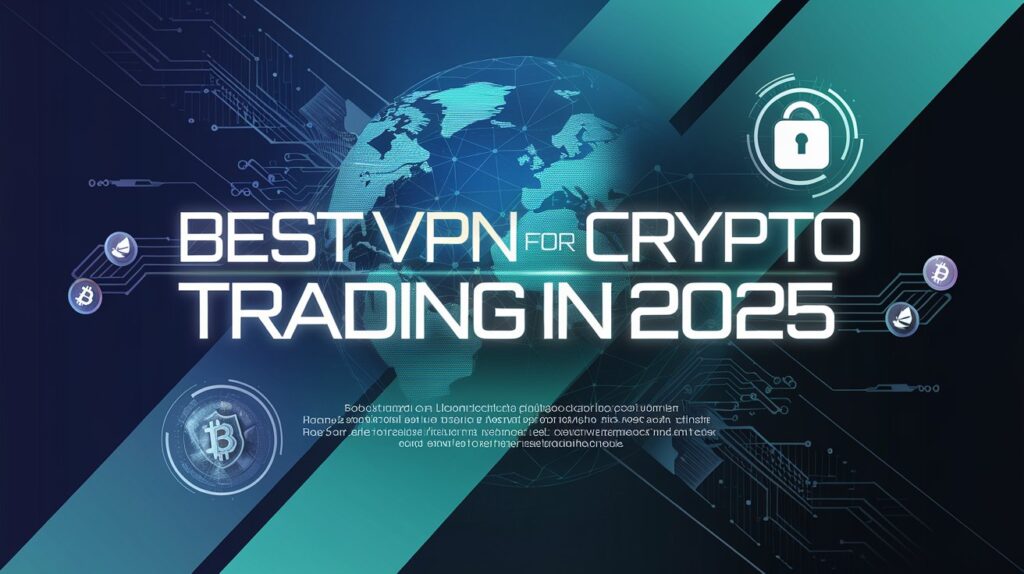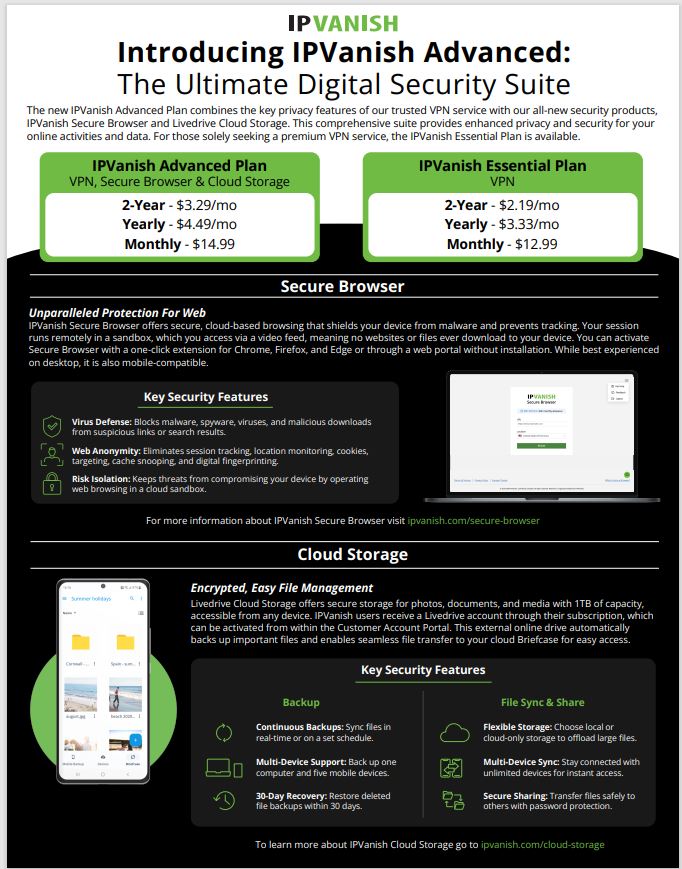
The world of cryptocurrency trading is growing rapidly, but so are its risks. Using one of the best VPNs for crypto trading is essential to protect yourself from hackers, access geo-restricted crypto exchanges, and ensure your online activity remains private. A VPN encrypts your internet connection, masks your IP address, and secures your data, giving you peace of mind while trading cryptocurrencies. However, not all VPNs are created equal. In this article, we’ll dive into the best VPNs for crypto trading in 2025, their pros and cons, and how to pick the right one for your needs.
Why Crypto Traders Need a VPN
Crypto trading comes with its fair share of risks. From cyberattacks to privacy concerns, your trading activity could be vulnerable without proper protection. Here’s why a VPN is a must for crypto traders:
- Protection Against Hackers Crypto exchanges are prime targets for hackers. Using a VPN encrypts your connection, making it almost impossible for cybercriminals to intercept sensitive data like passwords or wallet information.
- Bypass Geo-Restrictions Certain crypto exchanges, like Binance and Coinbase, are restricted in some regions. A VPN allows you to change your virtual location, providing access to platforms that may otherwise be blocked in your country.
- Privacy and Anonymity Cryptocurrencies are often considered anonymous, but your IP address can still be tracked. A VPN masks your IP address, ensuring complete anonymity while trading.
- Secure Public Wi-Fi Connections Trading on public Wi-Fi? Without a VPN, your connection could be intercepted. A VPN encrypts all data, ensuring safe trading even on unsecured networks.
- Avoid ISP Monitoring Internet Service Providers (ISPs) can monitor your online activities and throttle your connection speeds. A VPN prevents ISPs from tracking your crypto trading activities.
If you’re trading on popular platforms like Binance, securing your activity with a VPN is crucial to protect your funds and ensure privacy. New to Binance? Learn How to Make Money on Binance as a Beginner.
What to Look for in a VPN for Crypto Trading
Not all VPNs are suitable for crypto trading. Here are the key features to consider when choosing a VPN:
- Strong Encryption: Look for AES-256 encryption, the gold standard for cybersecurity.
- No-Logs Policy: Ensure the VPN doesn’t store user data or browsing activity.
- Global Server Network: A large number of servers in various countries helps bypass geo-restrictions.
- Fast Speeds: VPNs can slow down your internet. Choose one with minimal speed reduction.
- Cryptocurrency Payments: Some VPNs accept crypto payments, ensuring anonymity.
- Compatibility: Ensure the VPN supports all your devices (Windows, macOS, Android, iOS, etc.).
Best VPNs for Crypto Trading in 2025
After extensive research and testing, here are the top VPNs for crypto trading:
Best VPNs for Crypto Trading in 2025 – a detailed list
1. NordVPN – Best for Secure Crypto Trading

NordVPN is a market leader known for its exceptional security and privacy features. Its AES-256 encryption and strict no-logs policy make it a top choice for crypto traders. With over 6,700 servers in 111 countries, NordVPN ensures fast and reliable connections wherever you are. When exploring the Best VPNs for Crypto Trading, NordVPN stands out for its unparalleled combination of speed, security, and global reach.
Key Features:
- AES-256 encryption for top-tier security.
- Located in Panama (no data retention laws).
- RAM-only servers ensure no data storage.
- Threat Protection blocks malware and ads.
Pros:
- ✅ Highly secure encryption.
- ✅ Audited no-logs policy.
- ✅ Ultra-fast with NordLynx protocol.
- ✅ 6,700+ servers worldwide.
- ✅ Accepts cryptocurrency payments.
Cons:
- ❌ No free plan available.
- ❌ Limited to 10 simultaneous connections.
- ❌ Some features require additional payment.
Pricing: Starts at $2.99/month. Try it with a 30-day money-back guarantee.
Why Choose NordVPN?
For traders prioritizing security, privacy, and speed, NordVPN offers a reliable solution.
2. Surfshark – Budget-Friendly VPN for Crypto Traders

Surfshark combines affordability with high-end features. It allows unlimited device connections, making it perfect for users who want to protect multiple devices. Its CleanWeb feature blocks ads, malware, and trackers, ensuring a smooth and secure trading experience. When considering the Best VPNs for Crypto Trading, Surfshark is a standout option, offering exceptional value and advanced security for crypto enthusiasts.
Key Features:
- AES-256 encryption with ChaCha20 for added security.
- NoBorders Mode for restricted regions.
- Unlimited simultaneous connections.
Pros:
- ✅ Unlimited device connections.
- ✅ Affordable pricing ($1.99/month).
- ✅ No-logs policy audited by Deloitte.
- ✅ Wide server coverage in 100+ countries.
- ✅ User-friendly interface.
Cons:
- ❌ No free version available.
- ❌ Based in the Netherlands (Nine-Eyes jurisdiction).
Pricing: Starts at $1.99/month with a 30-day money-back guarantee.
Why Choose Surfshark?
If you’re on a budget but still want a secure and versatile VPN, Surfshark is an excellent choice.
3. IPVanish – Best for Unlimited Device Connections

IPVanish stands out for offering unlimited simultaneous connections at an affordable price. It’s ideal for crypto traders who need strong encryption and customizable security features. While it doesn’t support crypto payments, its no-logs policy ensures privacy. Among the Best VPNs for Crypto Trading, IPVanish shines as a reliable choice for users seeking flexibility, robust security, and excellent value.
Key Features:
- WireGuard protocol for fast connections.
- Advanced encryption with perfect forward secrecy.
- No-logs policy independently audited.
Pros:
- ✅ Unlimited device connections.
- ✅ Affordable yearly plans.
- ✅ Advanced encryption.
- ✅ DNS leak protection.
Cons:
- ❌ No cryptocurrency payment options.
- ❌ Smaller server network compared to competitors.
- ❌ Limited functionality in restrictive regions like China.
Pricing: Starts at $2.19/month with a 30-day money-back guarantee.
Why Choose IPVanish?
For traders needing to secure multiple devices simultaneously, IPVanish is a great pick.
4. ExpressVPN – Best for Speed and Privacy

ExpressVPN is known for its blazing-fast speeds and privacy features. Its RAM-only servers ensure that no user data is stored, making it a trusted choice for privacy-conscious crypto traders. While it’s on the pricier side, its reliability makes up for it.
Key Features:
- RAM-only servers for zero data retention.
- Threat Manager blocks trackers.
- Based in the British Virgin Islands (privacy-friendly jurisdiction).
Pros:
- ✅ Fast and reliable connections.
- ✅ Privacy-first RAM-only servers.
- ✅ Accepts Bitcoin payments.
- ✅ 105+ server locations.
Cons:
- ❌ Higher price compared to alternatives.
- ❌ Limited to 8 simultaneous connections.
- ❌ Only Bitcoin accepted as crypto payment.
Pricing: Starts at $4.99/month with a 30-day money-back guarantee.
Why Choose ExpressVPN?
For traders prioritizing speed and privacy, ExpressVPN offers a premium experience.
5. CyberGhost – Best for Geo-Unblocking

CyberGhost has one of the largest server fleets, making it ideal for bypassing geo-restrictions on crypto trading platforms. Its user-friendly interface and specialized servers make it a great choice for beginners.
Key Features:
- 11,500+ servers in 100 countries.
- Specialized servers for streaming and gaming.
- AES-256 encryption for secure connections.
Pros:
- ✅ Extensive server network.
- ✅ Affordable pricing plans.
- ✅ No-logs policy based in Romania.
- ✅ Specialized servers for specific needs.
Cons:
- ❌ WireGuard issues on macOS.
- ❌ Limited to 7 simultaneous connections.
- ❌ Only Bitcoin accepted as crypto payment.
Pricing: Starts at $2.03/month with a 45-day money-back guarantee.
Why Choose CyberGhost?
If you need a user-friendly VPN with excellent unblocking capabilities, CyberGhost is a solid option.
6. ProtonVPN – Secure and Free Option

ProtonVPN offers a free plan with strong security features, making it a great option for beginners or those on a tight budget. Its premium plans include advanced features like Secure Core and Forward Secrecy.
Key Features:
- AES-256 encryption with Secure Core servers.
- Based in Switzerland (privacy-friendly).
- Free plan available with limited servers.
Pros:
- ✅ Free plan with no data limits.
- ✅ Privacy-friendly jurisdiction.
- ✅ Accepts cryptocurrency payments.
- ✅ No-logs policy audited by Securitum.
Cons:
- ❌ Limited servers for free users.
- ❌ Only 10 simultaneous connections.
- ❌ Slower speeds on the free plan.
Pricing: Starts at $2.99/month. Free plan available.
Why Choose ProtonVPN?
For traders who want a secure VPN with a free plan, ProtonVPN offers a reliable solution.
Risks of Using a VPN for Crypto Trading
While VPNs provide immense benefits for crypto traders, such as security, privacy, and accessibility, they are not without their challenges. Here’s an in-depth look at the potential risks and how to mitigate them:
1. Platform Restrictions
Many cryptocurrency exchanges, such as Binance, Coinbase, and Kraken, have strict policies regarding VPN usage. While using a VPN to access restricted platforms might seem like a practical workaround, it can lead to complications:
- Blocked IP Ranges: Some platforms actively detect and block VPN IP addresses, particularly those associated with free or overused VPN servers.
- Account Suspension: If an exchange identifies a user bypassing regional restrictions using a VPN, it may suspend or permanently ban the account. This could result in losing access to your funds until you can verify your identity and location.
- Limited Platform Functionality: Even if you bypass restrictions, certain features like withdrawals or advanced trading options might remain inaccessible due to platform safeguards against VPNs.
How to Mitigate:
To minimize the risk, choose a VPN with features like dedicated IP addresses or obfuscation (e.g., NordVPN’s Obfuscated Servers or Surfshark’s NoBorders Mode). These make your VPN usage less detectable by crypto platforms.
2. Legal Concerns
In some countries, both cryptocurrencies and VPNs face heavy regulation or outright bans. For example:
- Prohibited Crypto Trading: Countries like China, Egypt, and Bolivia have strict laws banning cryptocurrency trading altogether. Using a VPN to trade in these countries may violate local laws, potentially leading to fines or legal action.
- VPN Restrictions: Nations like Russia and the UAE restrict or ban the use of VPNs entirely. If caught using a VPN, you may face penalties ranging from fines to imprisonment, depending on the jurisdiction.
How to Mitigate:
Always research the legal status of cryptocurrencies and VPNs in your region before proceeding. Ensure you are aware of the risks and have a backup plan, such as accessing exchanges in compliant regions. In highly restrictive countries, use a VPN with advanced obfuscation technology to avoid detection.
3. Performance Issues
A VPN can significantly impact your internet speed due to:
- Encryption Overhead: VPNs encrypt all internet traffic, which can slow down your connection, especially if the server is located far from your physical location.
- Server Congestion: Free or overcrowded VPN servers may result in reduced speeds, affecting the time-sensitive nature of crypto trading.
- Latency Issues: A slower connection can lead to delays in placing orders or accessing trading platforms, which could be costly during volatile market conditions.
How to Mitigate:
Choose a high-performance VPN like ExpressVPN or NordVPN, which offer minimal speed reductions and optimized servers. Opt for a server location close to your physical location or the platform’s base to reduce latency.
4. Security Concerns with Free VPNs
Free VPNs might seem like an attractive option, but they often come with significant security risks:
- Data Logging: Many free VPNs monetize their service by logging and selling user data to third parties, which completely undermines the purpose of using a VPN for privacy.
- Weak Encryption: Free VPNs may not use strong encryption protocols, leaving your connection vulnerable to hackers.
- Ads and Malware: Some free VPNs inject ads or even malware into your browsing experience, posing a direct risk to your cryptocurrency wallet and trading platforms.
How to Mitigate:
Avoid free VPNs and invest in a reputable paid service like ProtonVPN (which offers a secure free version) or CyberGhost for reliable security and no-logs policies.
5. Trust in the VPN Provider
When using a VPN, all your internet traffic passes through its servers, meaning the provider has the potential to see your activity. This raises several concerns:
- Shady Providers: Some VPN providers may falsely advertise no-logs policies or cooperate with government surveillance programs, compromising your privacy.
- Data Breaches: If the VPN provider experiences a security breach, your data could be exposed, including sensitive information about your crypto transactions.
How to Mitigate:
Choose VPN providers that have undergone independent audits of their no-logs policies, such as NordVPN, ExpressVPN, and Surfshark. These audits verify that the provider doesn’t store or mishandle user data.
6. Lack of Knowledge and Misuse
Even with a VPN, many users unknowingly compromise their security:
- Using Public Wi-Fi Without Extra Precautions: While a VPN encrypts your connection, you should also enable two-factor authentication (2FA) on your crypto accounts to prevent unauthorized access.
- Incorrect Server Selection: Using a VPN server in a region with strict crypto laws (e.g., China or Qatar) can backfire, as you may still face platform restrictions or legal challenges.
- Assuming Absolute Anonymity: While a VPN provides significant privacy, it doesn’t make you completely anonymous. Your activities may still be linked to your identity through cookies or account details on trading platforms.
How to Mitigate:
Educate yourself on best practices when using a VPN. Combine it with additional security measures like strong passwords, 2FA, and regular software updates to ensure maximum protection.
7. Increased Costs
High-quality VPNs, while worth the investment, can add to your trading expenses. Premium VPNs like ExpressVPN, NordVPN, and CyberGhost require monthly or annual subscriptions, which might feel burdensome for beginners or traders on a tight budget.
How to Mitigate:
Look for long-term subscription deals or discounts, such as Surfshark’s affordable plans starting at $1.99/month. Many providers also offer money-back guarantees, allowing you to test their services risk-free.
8. Risk of Relying Solely on VPNs
While a VPN is an excellent tool for enhancing security and privacy, it’s not a silver bullet. Relying solely on a VPN without implementing additional safeguards can still leave you vulnerable:
- Phishing Attacks: A VPN cannot protect you from phishing scams, where attackers trick you into revealing sensitive information.
- Weak Exchange Security: If the crypto platform you use has poor security practices, even the best VPN cannot prevent a breach.
How to Mitigate:
Use a VPN as part of a broader security strategy that includes secure crypto wallets, robust exchange platforms, and constant vigilance against phishing attempts.
Final Thoughts
A reliable VPN is essential for cryptocurrency traders, offering enhanced security, privacy, and accessibility. NordVPN and Surfshark stand out as the top options for 2024, balancing security, speed, and affordability. Whether you’re a seasoned trader or just starting, investing in the right VPN will safeguard your assets and give you peace of mind.
FAQs
1. Is it legal to use a VPN for crypto trading?
Yes, VPNs are legal in most countries and are widely used for online privacy and security. However, using a VPN to bypass crypto exchange restrictions may violate the platform’s terms of service, potentially leading to account suspension. Always review the regulations of both the country you’re in and the crypto exchange you’re using.
2. Can I use a free VPN for crypto trading?
While free VPNs like ProtonVPN offer basic security, they often come with limitations such as slower speeds, restricted server locations, and weaker encryption protocols. For reliable performance and security during crypto trading, a premium VPN like NordVPN or Surfshark is highly recommended.
3. Which VPN is best for crypto trading?
NordVPN is the top choice for its combination of strong security features, fast speeds, and robust privacy policies. Its no-logs policy and advanced encryption make it an excellent option for crypto enthusiasts.
4. Can I pay for a VPN with cryptocurrency?
Yes, many premium VPN providers, such as NordVPN, ExpressVPN, and CyberGhost, accept cryptocurrency payments. This allows you to purchase a subscription anonymously, adding an extra layer of privacy to your online activities.
5. Will using a VPN slow down my crypto trading activities?
Using a VPN can slightly reduce your internet speed due to encryption and rerouting through remote servers. However, premium VPNs like NordVPN and ExpressVPN are optimized for minimal speed reduction, ensuring smooth trading experiences.
6. Is a VPN enough to secure my crypto trading?
While a VPN significantly enhances your security and privacy, it is not a complete solution. You should also use strong passwords, enable two-factor authentication (2FA) on your crypto accounts, and store your funds in secure wallets.
7. Can a VPN unblock restricted crypto exchanges like Binance or Coinbase?
Yes, VPNs with a global server network can help bypass geo-restrictions and access platforms like Binance or Coinbase. However, this may violate the platform’s terms of service, so proceed with caution.
8. Are there risks in using a VPN for crypto trading?
Yes, there are risks, such as platform restrictions (some exchanges block VPN IPs), potential legal concerns in countries with strict crypto laws, and performance issues like reduced internet speeds. However, these risks can be mitigated by using a reliable VPN provider and following best practices.
9. How do I choose the right server location for crypto trading?
Select a server location in a country with relaxed crypto regulations, such as Estonia, Switzerland, or Singapore. Avoid countries with strict crypto bans like China or Egypt, as this may result in restricted access or account bans.
10. Can I use a VPN to trade cryptocurrencies anonymously?
A VPN can enhance your anonymity by masking your IP address, but true anonymity also requires using private browsers, avoiding cookies, and ensuring that the crypto exchange doesn’t require identity verification (KYC).
Conclusion
Cryptocurrencies and VPNs go hand in hand, providing security, privacy, and access to global trading platforms. With a provider like NordVPN, not only can you make your transactions safer and more private, but you can also bypass geo-restrictions to access the trading platforms you need.
By encrypting your internet traffic and masking your IP address, a VPN shields you from hackers, protects your sensitive data, and reduces the risks associated with public Wi-Fi networks. Paying for a VPN with cryptocurrency further enhances your privacy, ensuring your online activities remain anonymous.
Choosing the right VPN for crypto trading is essential. Consider factors like strong encryption, a no-logs policy, fast speeds, and server coverage to ensure you’re adequately protected. Premium VPNs like NordVPN, Surfshark, and ExpressVPN are excellent choices for their robust security and user-friendly features.
Based on the tips and lists in this guide, you now have a better understanding of how a VPN can benefit cryptocurrency enthusiasts. By combining a reliable VPN with additional security measures like strong passwords, two-factor authentication, and secure wallets, you can trade cryptocurrencies safely and confidently.
With the right tools and strategies, you can navigate the crypto world securely, avoid legal or platform-related complications, and focus on what truly matters—growing your investments. Take control of your online privacy today and enjoy seamless, secure crypto trading with a trusted VPN provider.





